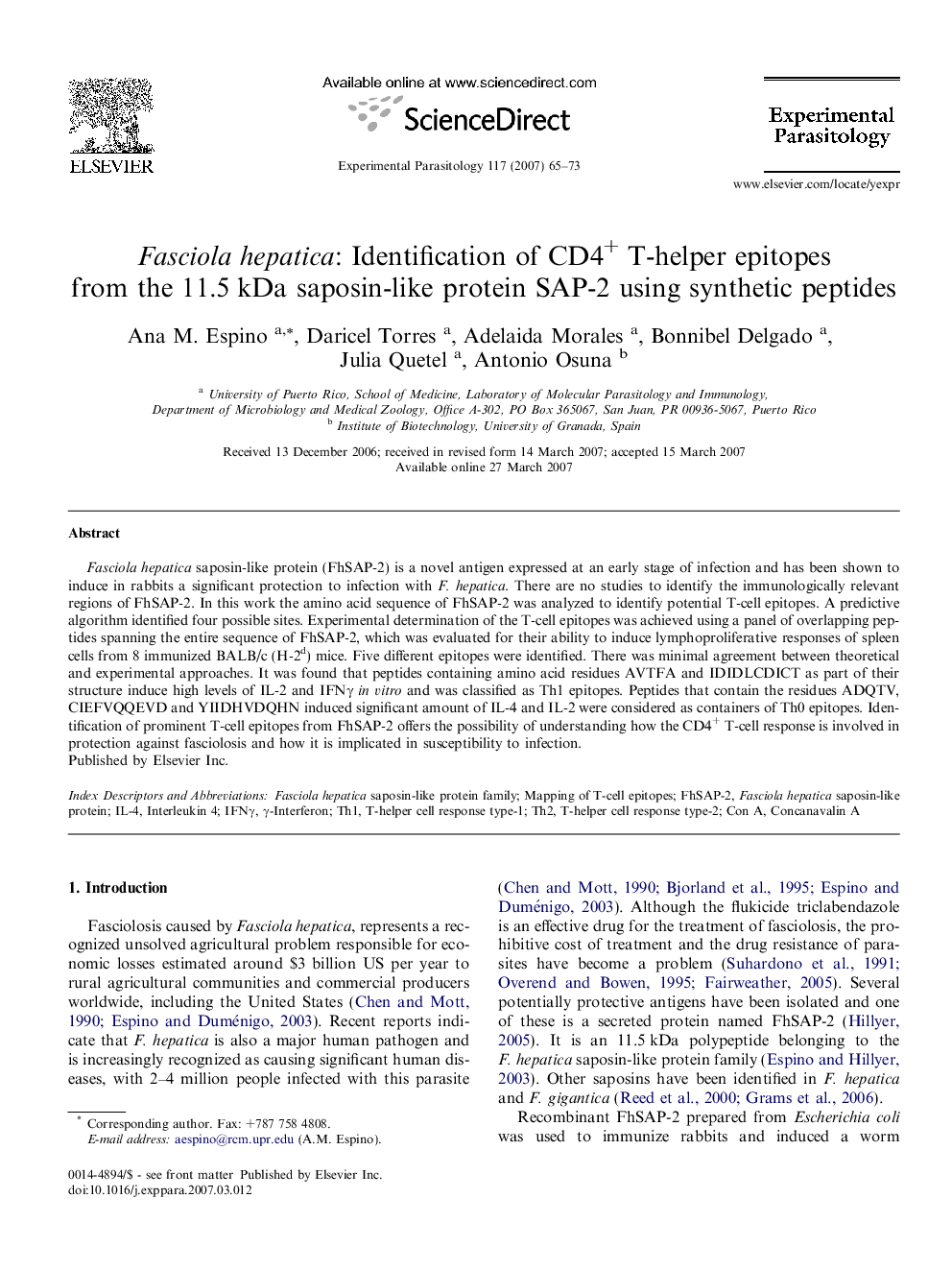| کد مقاله | کد نشریه | سال انتشار | مقاله انگلیسی | نسخه تمام متن |
|---|---|---|---|---|
| 4371660 | 1302534 | 2007 | 9 صفحه PDF | دانلود رایگان |

Fasciola hepatica saposin-like protein (FhSAP-2) is a novel antigen expressed at an early stage of infection and has been shown to induce in rabbits a significant protection to infection with F. hepatica. There are no studies to identify the immunologically relevant regions of FhSAP-2. In this work the amino acid sequence of FhSAP-2 was analyzed to identify potential T-cell epitopes. A predictive algorithm identified four possible sites. Experimental determination of the T-cell epitopes was achieved using a panel of overlapping peptides spanning the entire sequence of FhSAP-2, which was evaluated for their ability to induce lymphoproliferative responses of spleen cells from 8 immunized BALB/c (H-2d) mice. Five different epitopes were identified. There was minimal agreement between theoretical and experimental approaches. It was found that peptides containing amino acid residues AVTFA and IDIDLCDICT as part of their structure induce high levels of IL-2 and IFNγ in vitro and was classified as Th1 epitopes. Peptides that contain the residues ADQTV, CIEFVQQEVD and YIIDHVDQHN induced significant amount of IL-4 and IL-2 were considered as containers of Th0 epitopes. Identification of prominent T-cell epitopes from FhSAP-2 offers the possibility of understanding how the CD4+ T-cell response is involved in protection against fasciolosis and how it is implicated in susceptibility to infection.
Journal: Experimental Parasitology - Volume 117, Issue 1, September 2007, Pages 65–73